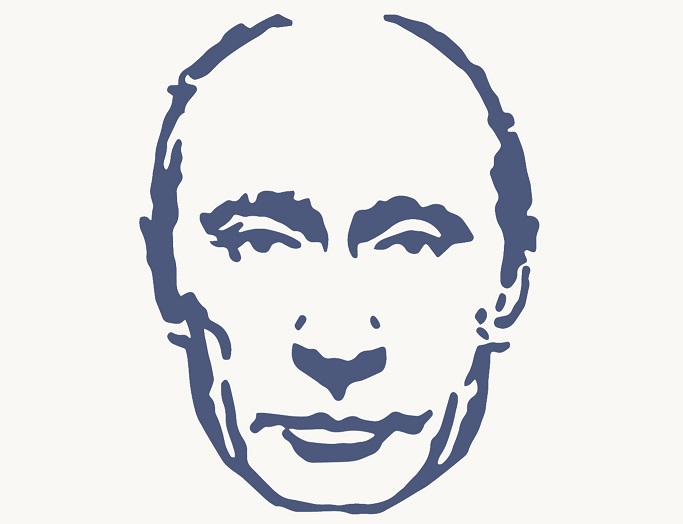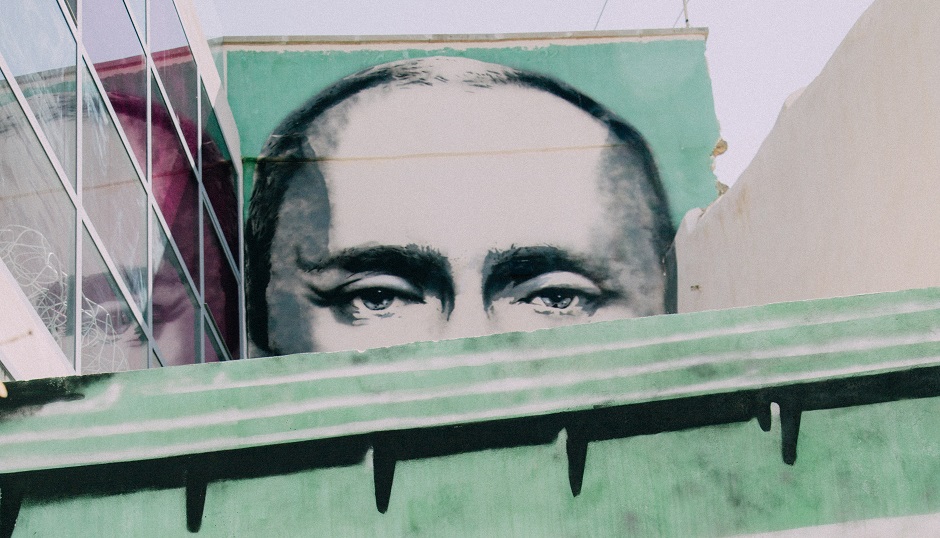- Home |
- Search Results |
- Putin was KGB, but not as you know it
Putin was KGB, but not as you know it
Meet the world’s most dangerous man. Despite the millions of words written on Putin's Russia, the West still fails to truly understand one of the world's most powerful politicians, whose influence spans the globe and whose networks of power reach into the heart of our daily lives. In this extract from We Need To Talk About Putin, author Mark Galeotti talks about Putin’s early years in the KGB.

At the end of 1999, Putin was prime minister, and would soon be elected president. He was attending a party held at the Lubyanka, the 19th century building which had been designed for an insurance company but gained infamy as the headquarters of successive Soviet secret police agencies. Even today, although the main offices of the Federal Security Service (FSB), the KGB’s current successor, are in an anonymous grey block on the other side of the road, it still uses the Lubyanka, and the gala event was being held there to celebrate the founding of the Cheka, the very first Bolshevik political police.
‘Dear comrades,’ Putin toasted, ‘I can report that the group of agents you sent to infiltrate the government has accomplished the first part of its mission.’ He was not entirely joking. Putin had not only been in the KGB, the notorious Soviet intelligence and security agency – he had been a fan of it from an early age. He had wanted to join while still at school, and went to the KGB’s regional headquarters in the so-called Bolshoi Dom – ‘the Big House’ – on Liteyny Avenue, close to the Neva River in Leningrad’s central neighbourhood. This slabsided building had an infamous reputation, having previously been the offices of Stalin’s secret police, where supposed enemies of the state had been executed in blood-drenched basement rooms and through which a steady flow of victims had passed to the Gulag labour camps. Yet teenage Putin popped by for a chat. One can only guess at the reaction of the KGB officer who spoke to Putin, but he was told to go away and either do his military service or graduate from university first. What degree was best, Putin asked? Any would do, but when pushed the officer suggested law. And so it was: Putin went to Leningrad State University, graduated with a law degree in 1975 and joined the KGB. He would remain in the service for seventeen years, and these were the years that many feel shaped him. ‘I looked into Mr Putin’s eyes,’ US Senator John McCain once said after meeting him, ‘and I saw three things: a K, a G and a B.’
Putin still identifies strongly with the so-called Chekists. Many of his closest allies are veterans of the KGB and its successors, and he retains close connections with the security agencies. He did not coin the phrase ‘There is no such thing as a former KGB officer,’ but he certainly lives it.
Of course, this experience clearly played a role in the development of his world view, but it does not explain it entirely and there are other seminal experiences to examine. There was his hard-knocks childhood in Leningrad, when he lived in a single room in a cramped and crowded communal apartment with neither a bath nor hot water. There young Vladimir got into judo and sambo, the Soviet military martial art, perhaps as a way of protecting himself or of finding a community. His early lessons in the streets and the ring certainly seem to have left a mark, impressing on him a belief that confidence and determination can make up for strength and wealth. In a television interview in 2018, for example, he drew a parallel between geopolitics and martial arts: when trying to explain how Russia could exert more global authority than the West anticipates, he noted that fighters who succeed are not only strong, and those who are defeated are not necessarily physically weak, but ‘something is missing. Either willpower or patience, or commitment or courage. Something wasn’t enough. Something was lacking.’ Childhood friends he made back then, such as the billionaire Rotenberg brothers (with whom he sparred) and the cellist Sergei Roldugin, are still important to him today. Perhaps – dipping into the shallowest of pop psychology – the marginal and insecure nature of his childhood also contributed to a later commitment to ensuring that he was safe and comfortable, and that no one had power over him.

After his time in the KGB, there were the anarchic 1990s, when the new Russia appeared to be spiralling into chaos and nobody knew if tomorrow’s pay cheque would come, and what it would buy. All the old values seemed lost and devalued, and the only new ones seemed to be to seize opportunities and make a fast buck when you could. These were the days when Putin started working at the mayor’s office in St Petersburg – his home city, its pre- Revolutionary name restored – and rose to become deputy mayor, before moving to Moscow. There, he was rapidly promoted, going from deputy head of the Presidential Property Management Directorate (1996–7) to deputy head and then first deputy head of the Presidential Administration (1997–8), head of the FSB (1998–9) and prime minister (1999). If before joining the KGB Putin was the rootless outsider youngster looking for the right gang to join, after it, he was part of a group of insiders who were taking full advantage of every opportunity those unsettled times threw up, notably the so-called Ozero Dacha Cooperative which I will discuss in Chapter 4.
These experiences left their marks on Putin as much as his time in the KGB. However, it is interesting to wonder how far before and after his service he has been chasing and idolising a fantasy image of the spooks rather than the reality. In his autobiography, First Person, he admits that before he joined the KGB, his picture of the agency came from spy stories, films and television programmes. The appeal was less the tradecraft or the nature of the missions as much as the sense that a spy really mattered. As he put it, ‘I was most amazed by how a small force, a single person, really, can accomplish something an entire army cannot. A single intelligence officer could rule over the fates of thousands of people. At least, that’s how I saw it.’